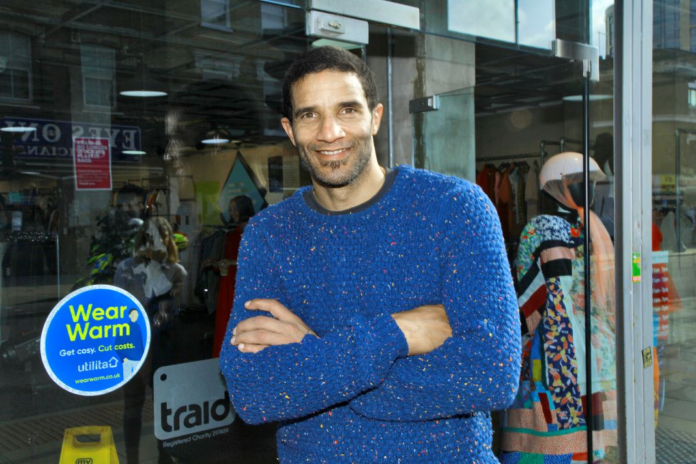
A new consumer behaviour change campaign by energy supplier Utilita Energy has called on UK households not to heat their homes any higher than 21 degrees and “consider other ways” to stay warm.
A ‘Wear Warm’ campaign was after research by Utilita Energy showed almost half of the nation’s homes are heated to 24 degrees centigrade for half the year – the same temperature as Barbados, it noted.
The ‘Wear Warm’ campaign will be featured nationwide at 657 charity shops. The campaign was officially launched by former footballer David James and British fashion designer Wayne Hemmingway.
James, a former England goalkeeper and environmentalist, said: “One of my personal bugbears is seeing people sitting at home in the winter, wearing a T-shirt, with the heating cranked up. There’s absolutely no sense in it, and now we have the evidence to reveal the impact that this type of behaviour is having on the planet and the pocket.
“For example, to offset the pollution generated by overheated homes here in the UK, we’d need to plant 51 million trees each year – that’s enough to cover 392,000 football pitches.”
Research also found a third of households who use an additional heat source say they don’t know if it is cheaper than using the central heating system. Another third say they know the additional heat source is more expensive than the central heating, but use it regardless.
Bill Bullen, founder and CEO of Utilita Energy, added: “Energy bosses and MPs have previously been berated for daring to suggest that consumers put a jumper on to stay warm, and on the subject of fuel poverty – it’s not the right message. But there’s no excuse for today’s government to avoid a simple ‘don’t go above 21 degrees message’, as we have.
“We’re confident that our simple and effective message will have a positive impact on the pockets of bill payers this winter and will help out Mother Earth – let’s make the year 2021 the last year that we heated our homes to higher than 21 degrees.”
